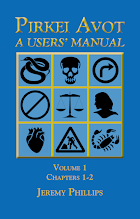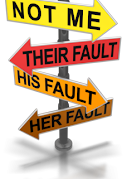One of the most tantalising passages in the Torah's Book of Bemidbar tells of the punishment of Miriam for speaking about her younger brother Moses. The Torah narrative consists of 16 verses: Miriam and Aaron both observe that not merely Moses but they too are prophets; God hears, reprimands them, displays His anger with them, praises Moses’ qualities, explains why Moses’ prophecy is of a different order from theirs, then punishes Miriam with tzora’at, for which she must be quarantined for a week. Aaron is not explicitly punished.
Commentators on the Torah raise and discuss many questions, and there is much to ask. For example, why does the narrative twice mention that Moses married a Cushite woman, a detail that neither Miriam nor God appear to address? What indeed is a “Cushite woman”? Why is Miriam punished for speaking words that are true, and why does Aaron escape punishment? What has the statement that Moses was exceedingly humble have to do with the dialogue between God and his siblings and with the nature of his prophetic ability? And are Miriam and Aaron, who are themselves among the most righteous members of the generation leaving Egypt, not entitled to pass comment on their younger brother, given that they are his loyal supporters and are hardly seeking to overthrow him or challenge his authority?
Midrash
picks up on this incident and fleshes it out with details not found in the
Torah. Thus the description of Moses’ wife Zipporah as a “Cushite” was an
allusion to her beauty. Moses was however no longer engaging in marital
relations; his level of prophecy and intimacy with God was so high that he had
to be constantly on-call, always ready to receive a divine message. Miriam and
Aaron also received prophecy, but with neither the urgency nor the clarity with
which Moses did so. Their prophecy therefore came only while they were asleep
or in a trance. Being a humble and modest man, Moses did not tell his siblings
that he received his prophecy at a higher level than they did; nor did he
broadcast the fact that he had suspended marital relations with Zipporah, a
state of affairs that Miriam deduced from Zipporah’s failure to wear ornaments
or from overhearing Zipporah’s expression of sympathy for the wives of the 70
auxiliary prophets whom God asked Moses to select earlier in the same parashah.
Miriam and Aaron spoke of the fact that they too were prophets on the
assumption that, if they could still receive divine messages while conducting a
normal marriage, it should have been possible for Moses to do likewise. This
constituted lashon hara—inadmissible speech concerning another
person—for which Miriam was punished, tzora’at being the punishment
traditionally linked with lashon hara. Aaron escaped tzora’at,
either because he was wearing priestly garments at the time or because, seeing
Miriam in her afflicted state, he immediately applied the lesson to himself and
repented.
There are
numerous variations on the theme sketched out above, but it does represent a
sort of midrashic consensus as to what the Torah narrative is about. What’s
more, these midrashim seem to have cohered into a sort of Torah fact
supplement. Ultimately, though, midrashim remain midrashim. If this was indeed
what happened in factual terms, we might be asking why God chose to omit from
His holy narrative so many facts that vest this episode with meaning.
Rabbi Moshe
Chaim Luzzatto, in his Ma’amar al Ha’Aggadot, reminds students of
midrashic and aggadic literature that it is capable of being understood on more
than one level. At the simplest level it may be read as plain fact, and some
aggadic material is so sober and credible when read in conjunction with the Torah
that it can be hard to view it any other way. Other such material is so
fantastic, or so greatly contradicted by other midrashic writing, that one
struggles to view it as having any literal narrative content at all. Where midrash is capable of being learned on
more than one level, a person should be slow to say that one approach is
“right” while another is “wrong”, particularly when we recall that the authors
of midrash did not tell us how to read their teachings. In some cases we have
to concede that we cannot learn from them at all: they are effectively written
in code and we have lost the key.
Is there
then a different way to extract a teaching from this story of Amram and
Yocheved’s stellar offspring?
In his pirush
on the Torah, Malbim takes a fresh view of this episode. Yes, Moses has a
beautiful wife but has separated from her—and, yes, while all three siblings
are prophets only Moses has taken this serious and controversial step. Malbim
however suggests that Miriam and Aaron were under a misapprehension. They had no doubt as to Moses’ humility or
his greater quality as a prophet and a servant of God. Where they went wrong is
that they thought too highly of their brother. They believed that Moses’
prophecy was at such a supernal level that, to all intents and purposes, the
word of God entered directly into his nefesh, his soul, and that his nefesh
was so pure that it was quite unaffected by any tumah, ritual impurity,
that might affect his body. On that basis he could continue to have a physical
relationship with Zipporah without in any sense affecting his ability to
receive communications from God on an ongoing basis, at any time of the day and
night and regardless of what he was doing.
Malbim
makes no reference to Pirkei Avot, but his explanation ties in wll with that
tractate. What, in other words, was the mistake that Miriam and Aaron made?
They believed that they had assessed Moses’ conduct appropriately and that they
were entitled to do so. As prophets themselves they fulfilled Hillel’s
condition of not judging another until one was in his particular position (Avot
2:5). On this basis they then assumed that Moses had unnecessarily separated
from Zipporah when they should have realised that Moses had a good reason for
doing so, a reason that it was not for him to disclose to them. They should
have judged him lekaf zechut (Avot 1:6), giving him credit for a
decision that they did not understand, rather than concluding that he had in
any way done the wrong thing.
In taking this line, Malbim detaches from Miriam and Aaron the obloquy of facing divine displeasure and censure for exchanging words of lashon hara. Rather, they demonstrate both the importance of judging others favourably and the potentially serious consequences of failing to do so: when it comes to our attitudes towards our fellow humans, the wrongful thought can be as dangerous as the wrongful word.












